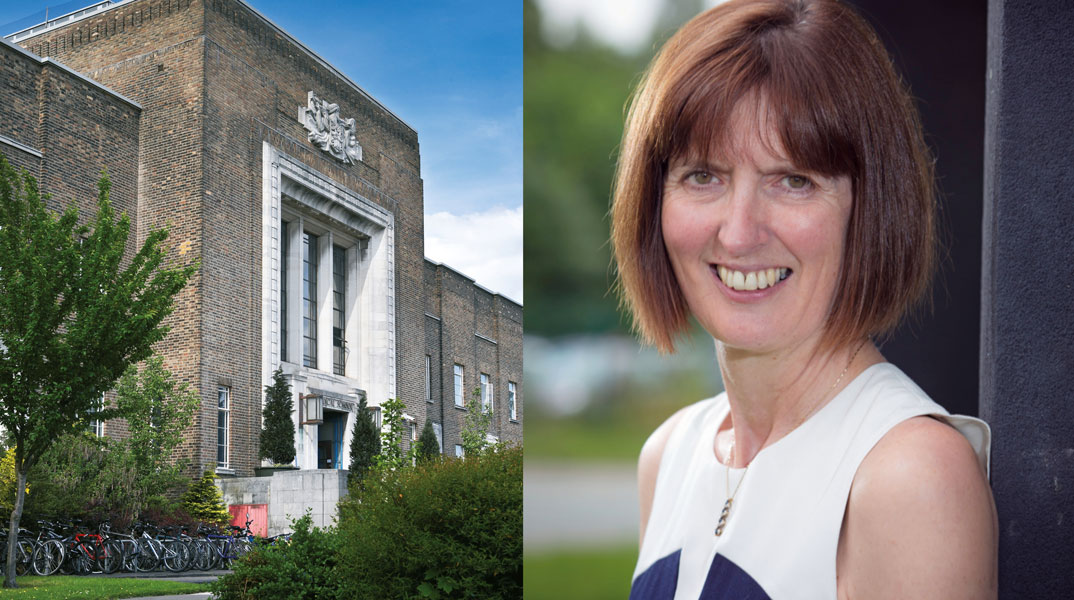Throughout the last year, Birmingham’s researchers have been continually seeking solutions for those affected by the pandemic and for improving our world. Read five of the latest reasons to be proud of your University…
Five reasons to be proud of your University
-

New five minute test for COVID-19
A new COVID-19 test that can give accurate results in less than five minutes has been developed by researchers at Birmingham. The test can be carried out at low temperatures, using standard laboratory equipment.
The method is currently being peer reviewed. The researchers anticipate that further development work could lead to a simple handheld test being developed which could give 'on the spot' results. The science used in the test has the potential to improve tests for other viruses, bacteria and even diseases, including cancer.
-

UK's top graduate employers make Birmingham their top choice
The University of Birmingham has been named the most targeted university by the UK's top 100 graduate employers, according to The Graduate Market in 2021. The survey, conducted during December 2020, assessed the impact that the COVID-19 pandemic had on graduate recruitment in 2020 and looked ahead to how many vacancies are available for new graduates in 2021.
Etta Parkes-Firth, Director of Careers and Employability at the University, says: 'This is particularly important in a competitive job market, and even more so in light of Coronavirus. Top employers know our graduates are exceptional, and are ready for the world of work, with Careers Network providing support to students and recent graduates at every step of the way.''
You can help more students thrive in their first job by becoming a mentor.
-

First recycling plant for the rare magnets key to our electrical products
High performance magnets are essential to thousands of electrical products, from computer hard drives to electric vehicles, but rare metals are needed to make them.
The UK’s first re-manufacturing line for high-performance sintered rare earth magnets will be developed by the University of Birmingham, for use in aerospace, renewable energy technologies and low carbon technologies.
The plant will recycle material from vehicle motors, audio products, hard disk drives and more, reducing the need to mine new material. Establishing a robust magnet recycling plant will complete the UK-based supply chain for sintered magnets and enable the UK to make a significant contribution to the UK's net zero targets on carbon emissions.
-

Tackling cancer during COVID-19
Professor Pam Kearns, one of Birmingham's leading experts in developing new drugs for cancer and delivering innovative clinical trials for childhood cancers, has been made a Trustee of Cancer Research (CRUK).
The role will draw on Professor Kearns' pioneering work in childhood cancer at the University of Birmingham and Birmingham Women and Children’s Hospital. She leads the research strategy for one of UK's largest cancer trials units (Cancer Research UK Clinical Trials Unit) and is Director of the University of Birmingham's Institute of Cancer and Genomic Sciences.
Read more from Pam Kearns on what happened to cancer while COVID-19 took the front seat and make a gift to support Birmingham's cancer research.
-
Improving our understanding and treatments for 'Long COVID'
Approximately 1 in 10 people with COVID-19 continue to experience symptoms and impaired quality of life 12 weeks after infection, known as 'Long COVID'. Common symptoms include extreme tiredness, shortness of breath, chest pain or tightness, 'brain fog', insomnia, heart palpitations, dizziness, pins and needles, joint pain, depression, anxiety, tinnitus, earaches, nausea, diarrhoea, stomach aches, loss of appetite, a high temperature, cough, headaches, sore throat, and changes to sense of smell or taste.
A team led by the University of Birmingham will work with thousands of non-hospitalised patients with Long COVID to co-produce a targeted intervention, tailored to individual patient need, plus resources to support symptom management and nurse-led support for those with the most severe symptoms.